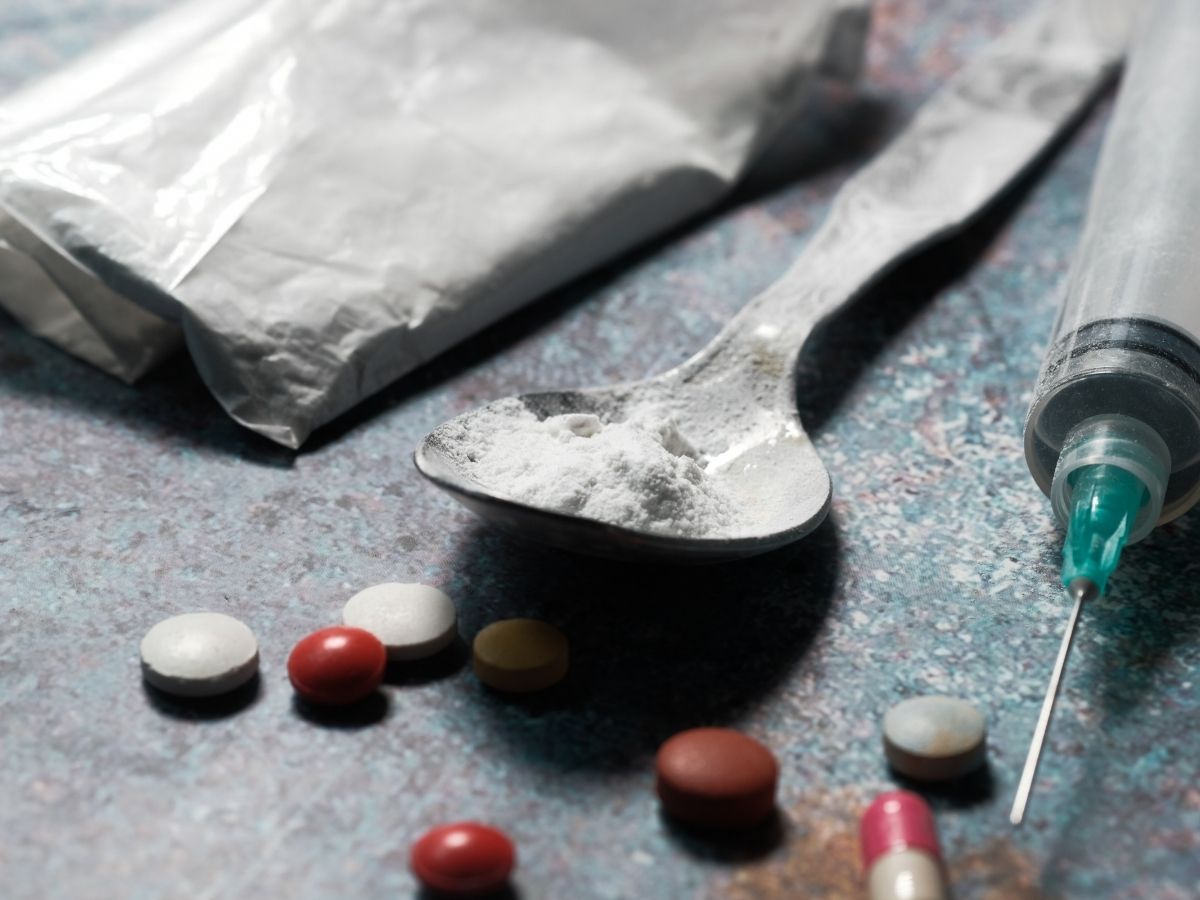
What are Illegal Stimulants?
Illegal stimulants are medicines that boost the activity of the central nervous system (CNS). These medications stimulate the nervous system, making a person more alert, energetic, and focused. Even though certain stimulant drugs are prescription drugs used in conjunction with the treatment of such disorders as attention deficit hyperactivity disorder (ADHD), narcolepsy, some other types of stimulant drugs are controlled substances and thus illegal due to the likelihood of abuse and addiction.
The most common examples of stimulant drugs abused are cocaine, methamphetamine, and ecstasy. The greatest temptation of these drugs is that they are used to induce a euphoric state; however, when they are misused long term, there are dire consequences to the body and the mind. People should realize that overuse of these drugs has adverse impacts and predisposes one to greater risks.
Skip To
Table of Contents
Classification of Illegal Stimulants
Stimulant drugs examples include the following.
Cocaine
Cocaine is one of the most well-known illegal stimulants and stimulant drug types. The mechanism of action involves a direct impact on dopamine levels in the brain, resulting in intense euphoria and increased energy.
Despite cocaine being formerly included in the prescriptions given in treating different medical complications, its addictive quality made it a controlled drug. Heavy cocaine consumption can also lead to heart attack, stroke, and severe mental complications such as anxiety, paranoia, and psychosis.
Methamphetamine
Another very addictive class of drugs is methamphetamine, or popularly called meth. One can smoke it, snort it, or inject it, and when smoked or injected, the experiences are best felt.
Extended stimulation of the nervous system by using methamphetamine may result in an enhanced occurrence of brain damage, cardiac arrest, and an increased risk of cognitive impairment. Similar to the case with cocaine, methamphetamine is a controlled substance, and it is considered illegal unless used medically.
Ecstasy (MDMA)
Another common illegal stimulant drug is ecstasy, or MDMA, which is abused socially. MDMA produces emotional warmth, euphoria, and serious health risks as well.
Ecstasy abuse may lead to dehydration, cardiac arrhythmia, and hyperthermia. It may cause brain damage after long-term use, especially the serotonin-producing neurons, and it is primarily associated with mental health issues like anxiety and depression.
End the Emotional Pain. Get Your Life Back.
Feeling Depressed, Anxious or Struggling with Mental Health Illness? Get Safe Comfortable Mental Health Dual Diagnosis High-Quality Therapy From Counselors That Care. Begin Your Recovery Now.
Hotline: (509) 348-4077

Entry Routes of the Illegal Stimulants
People misuse illegal stimulants in several ways, and these include:
- Swallowing (pills or powder)
- Snorting (powder form)
- Smoking (a frequent technique in the use of methamphetamine)
The intensity of nervous system stimulation is often dependent on the method of use. The effects of smoking or self-injection of illicit stimulants are more frequent and faster.
Intense Results of Misusing Unlawful Stimulants
The short-term outcomes of using illegal stimulants may be disastrous, and they include:
- Higher blood pressure rates and heart rate
- Irregular pulse / irregular heartbeat
- Heat illness (an increased body temperature)
- Dilated pupils
- Greater alertness and liveliness
- Loss of appetite and nausea
- Irritability, nervousness, and paranoia
- Sleep disturbances
All these side effects of stimulants are attributable to stimulation of the nervous system, and they can easily overwhelm the body, especially in an overdose, which may require immediate intervention.
Long-term Effects of Illicit Stimulants
Using illegal stimulants can permanently harm the body as well as the mind. The long-term risks comprise some of the following:
- Heart attack and stroke as a result of the constant work of the nervous system
- Heavy circulation due to damage to blood vessels
- Destruction of tissue at the location of consumption (e.g., destruction of nasal tissue when snorting cocaine)
- Common mental disorders, including psychosis, anxiety, and depression
- Stimulant use disorder and addiction development
- Cognitive impairments and loss of memory
- Poor eating habits that lead to malnutrition are related to having an appetite suppressed
- Mental and emotional long-term problems due to brain damage
Chronic overuse of illegal stimulants is life-redefining, as it seriously affects the overall quality of life.
Get Help. Get Better. Get Your Life Back.
Searching for Accredited Dual Diagnosis Mental Health Centers Near You?
Even if therapy failed previously, or are in the middle of a difficult crisis, we stand ready to support you. Our trusted behavioral health specialists will not give up on you. When you feel ready or just want someone to speak to about counseling alternatives to change your life call us. Even if we cannot assist you, we will lead you to wherever you can get support. There is no obligation. Call our hotline today.
FREE 24/7 Dual Diagnosis Mental Health Services HotlineComparison between Prescription Stimulants and Illegal Stimulants
Though most prescription drugs used to treat ADHD and narcolepsy, such as Adderall and Ritalin, have been prescribed and used frequently, they are also often abused. Prescription stimulants may also result in addiction and stimulant use disorder when inappropriately used, e.g., used to improve performance or to study informally, or beyond the prescribed limits.
Although there is control of prescription medication by medical practitioners, when they are abused, they may cause terrible effects, such as those of street drugs on the central nervous system stimulants.
Due to the difference in legality and also the purpose of stimulants, it is essential to differentiate between stimulants prescribed by a medical practitioner and illegal stimulants, which are abused to achieve an advantageous euphoria effect.

Treatment of Illicit Stimulant Addiction
Stimulant use disorder needs to be treated by specialists in the sphere as it concerns not only the body but also the mind of the disease. Fortunately, a possible range of treatment options can be offered:
1. Medical Detox
Usually, the primary step in the treatment of illegal stimulant addiction is medical detox. It assists people to get out of drugs safely and helps mitigate negative effects, as prescribed by medical professionals. Withdrawal symptoms such as anxiety, agitation, and abnormal heartbeat can also be dealt with in the detoxification process to make it as comfortable and safe as it can be.
2. Cognitive Behavioral Treatment (CBT)
CBT is a very successful treatment for cocaine and methamphetamine addiction. It assists patients to know and transform the negative thought patterns that lead to drug abuse and learn less harmful coping strategies.
3. Contingency Management
Contingency management is another behavioral therapy that involves the use of rewards whenever good behaviors, like turning up to therapy sessions or staying off substances, are recorded. It can be activity vouchers or even prizes that encourage people to continue with the recovery process.
4. The Matrix Model
Another popular form of treatment is the Matrix Model, which combines individual therapy, group therapy, and a family support program. It aims to develop self-esteem, motivation, and positive behavior change, helping people gain control over their lives and strengthen their recovery.
Comfortable Facilities & Amenities
High-Quality Mental Health Services & Behaviroal Health Substance Abuse Treatment
Rehab Centers TourRenowned Mental Health Centers. Serene Private Facilities. Inpatient Rehab Programs Vary.
Mental Health Helpline: (509) 348-4077Proven recovery success experience, backed by a Team w/ History of:
15+
Years of Unified Experience
100s
5-Star Reviews Across Our Centers
10K
Recovery Success Stories Across Our Network
- Low Patient to Therapist Ratio
- Comprehensive Dual-Diagnosis Treatment
- Complimentary Family & Alumni Programs
- Coaching, Recovery & Development Events
- Comfortable Onsite Medical Detox Center
FAQs: Getting Help Near You
-
How can I be treated against illegal stimulant addiction in Spokane Valley, Washington?
Yes, We Level Up Washington has specialized inpatient substance abuse care that treats the issues of illegal stimulant addiction, e.g., cocaine, methamphetamine, and ecstasy. Our addiction experts will collaborate with you to develop a treatment plan that will meet your needs.
-
What is the way to treat stimulant use disorder in Spokane Valley, WA?
Several evidence-based treatments available at We Level Up Washington, including stimulant use disorder, are medical detox, Cognitive Behavioral Therapy (CBT), and trauma therapy. We are dedicated to seeing that you attain long-term sobriety through a holistic form of treatment.
Quitting the Use of Illegal Stimulants
Drug abuse, such as abuse of cocaine and methamphetamine, may lead to severe physical and mental health effects. But with the help and care, anyone can recover.
At We Level Up Washington, we offer a personalized approach to stimulant use disorder treatment and allow people with an addiction to control their lives once again and succeed in experiencing enduring recovery. Learn more about how we can assist you or a loved one on the path towards recovery by contacting us today.
World-class, Accredited, 5-Star Reviewed, Effective Mental Health Dual Diagnosis Programs. Complete Integrated Inpatient Rehab with Free Post Discharge Therapy Planning.
Hotline: (509) 348-4077End the Emotional Pain Rollercoaster. Gain Stability & Happiness Through Recovery Treatment. Start Mental Health Counseling Today. Get Free No-obligation Guidance by Behaviroal Health Specialists Who Understand Mental Health Recovery.
Summary
Call today to speak with our team and learn more about our programs. We Level Up Washington: (509) 348-4077. Your next step starts here.





